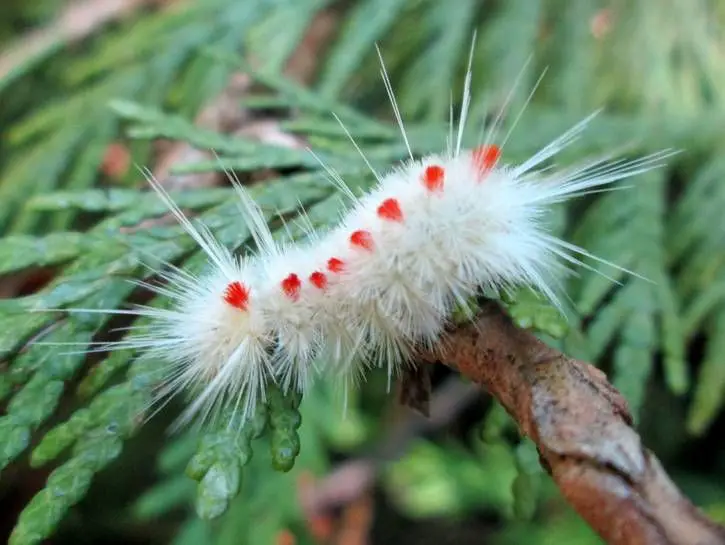Raspberries in Shade: Tips and Tricks for a Successful Harvest
Raspberries are delicious fruits that many gardeners enjoy growing and harvesting. But what if you don’t have a sunny spot in your garden for them? Can raspberries grow in shade? The answer is yes, but with some caveats. In this blog post, we will explore the effects of shade on raspberry plants and how to choose the best varieties and locations for growing raspberries in shade.
How much sunlight do raspberries need?

Raspberries are sun-loving plants that produce the best fruit in full sunlight, where they get 6–8 hours of sun each day. Full sunlight does not need to be 6–8 consecutive hours; instead, the 6–8 hours could be broken up throughout the day to prevent sunburned fruit. Raspberries also do better in rich soil that drains well.
Sunlight is important for raspberries because it affects the amount and quality of fruit they produce. Sunlight stimulates the production of flowers, which then develop into berries. Sunlight also helps the berries to ripen and sweeten by increasing the sugar content of the fruit.
What Happens When Raspberries Grow in Shade?
Raspberries can grow in partial shade, which is somewhere between 1.5 hours and four hours of sun per day. However, they won’t be able to bear as much fruit as those planted in full sun. The berries will also taste tarter than sweet due to the lack of sugar production. Fruit production in total shade, on the other hand, is unlikely.
Shade can also affect the growth and health of raspberry plants. Shade can reduce the vigor and size of the plants, making them more susceptible to diseases and pests. Shade can also increase the humidity and moisture around the plants, which can encourage fungal infections and rot.
How to Grow Raspberries in Shade?

If you only have a shady spot in your garden in which to grow raspberries, don’t worry; there are some tips and tricks that can help you get the most out of your plants. Here are some of them:
- Choose the right variety. Some varieties of raspberries are more tolerant of shade than others. For example, red raspberries tend to do better in shade than yellow or black raspberries. Some specific varieties that can grow well in shade are ‘Malling Jewel’ (early fruiting), ‘Glen Magna’ (late), ‘Octavia’ (very late), and ‘Autumn Bliss’ (autumn).
- Choose the right location. Even if you have a shady garden, you might be able to find a spot that gets some sun during the day. Look for areas that get morning sun, which is less intense and more beneficial for raspberries than afternoon sun2. Avoid areas that are shaded by buildings, walls, fences, or dense trees, as they can block light and air circulation.
- Prune and thin your plants. Pruning and thinning your raspberry plants can help them get more light and air and reduce the competition for nutrients and water. Prune your plants in late winter or early spring, removing any dead, diseased, or weak canes. Thin your plants by removing any suckers or runners that grow outside the row or bed, leaving about 6 inches between each cane.
- Fertilize and water your plants. Fertilizing and watering your raspberry plants can help them grow stronger, healthier, and produce more fruit. Fertilize your plants in early spring using a balanced fertilizer that is low in nitrogen, such as 10-10-10. Water your plants regularly, especially during dry spells, to keep the soil moist but not soggy.
Conclusion
Raspberries are wonderful fruits that can be grown in shade, as long as you choose the right variety, location, and care for your plants. By following these tips, you can enjoy a harvest of raspberries even in a shady garden. Happy gardening!
Frequently Asked Questions on Growing Raspberries in Shade
What are the best varieties of raspberries for growing in shade?
- Some varieties of raspberries that can grow well in shade are ‘Malling Jewel’ (early fruiting), ‘Glen Magna’ (late), ‘Octavia’ (very late), and ‘Autumn Bliss’ (autumn).
How can I prevent sunburned raspberries?
- You can prevent sunburned raspberries by breaking up the full sunlight into 8 hours or by choosing a location that gets morning sun rather than afternoon sun.
How can I increase the fruit production of raspberries in shade?
- You can increase the fruit production of raspberries in shade by pruning and thinning your plants, fertilizing and watering them regularly, and choosing the right variety and location for your plants.
How do I prune and thin raspberries in shade?
- You can prune and thin raspberries in shade by removing any dead, diseased, or weak canes in late winter or early spring and by removing any suckers or runners that grow outside the row or bed, leaving about 6 inches between each cane.
How do I fertilize and water raspberries in the shade?
- You can fertilize and water raspberries in shade by using a balanced fertilizer that is low in nitrogen, such as 10-10-10, in early spring and by watering your plants regularly, especially during dry spells, keeping the soil moist but not soggy.
What are the benefits of growing raspberries in shade?
- Some benefits of growing raspberries in shade are that they can extend the harvest season, reduce the risk of pests and diseases, and provide a cool and refreshing snack in the summer.
What are the drawbacks of growing raspberries in shade?
- Some drawbacks of growing raspberries in shade are that they can reduce the amount and quality of fruit, affect the growth and health of the plants, and increase the humidity and moisture around the plants.
How can I tell if my raspberries are getting enough sunlight?
- You can tell if your raspberries are getting enough sunlight by observing the color, size, and taste of the berries. Raspberries that get enough sunlight will be bright, large, and sweet, while raspberries that get too little sunlight will be dull, small, and tart.
Can I grow raspberries in containers in shade?
- Yes, you can grow raspberries in containers in shade, as long as you choose a large and deep container, use a well-drained potting mix, and place the container in a spot that gets at least 4 hours of sunlight per day.
Can I grow other berries in shade besides raspberries?
- Yes, you can grow other berries in shade besides raspberries, such as blackberries, gooseberries, currants, and elderberries. However, each berry type has its own light requirements and preferences, so you should do some research before planting them.








